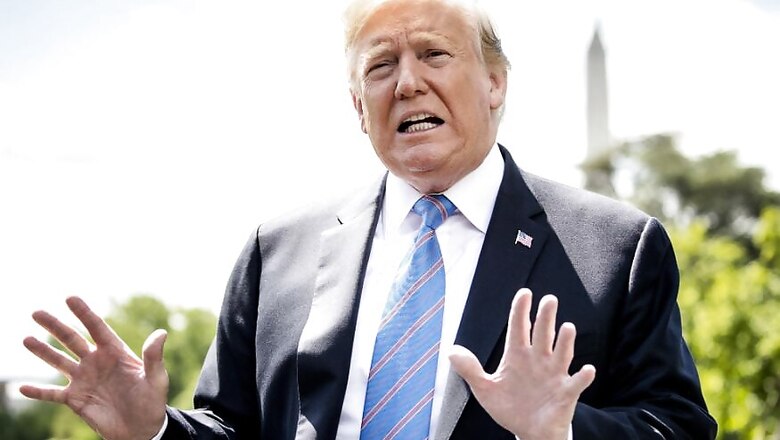
views
Washington: The US House of Representatives on Friday backed for a second time legislation that would terminate President Donald Trump's February declaration of a national emergency on the southern border with Mexico, sending the measure to the White House for Trump's expected veto.
The Democratic-led House passed the joint resolution by 236-174, as 11 Republicans and one independent joined Democrats in casting yea votes. The Republican-led Senate approved the measure earlier this week by 54-41. Eleven of the Senate's 53 Republicans joined Democrats favoring the resolution.
Trump used the very first veto of his presidency this March to strike down a similar measure that had cleared the House and Senate. Congress was unable to muster the two-thirds majorities in both chambers to override that veto and is not expected to do so this time.
Trump declared the emergency on the southern border to circumvent Congress and take money already designated for other programs to pay for the US-Mexico border wall he promised to build during his 2016 campaign.
Trump has also made his promise to build the wall a feature of his campaign for re-election next year.
Democratic lawmakers have said Trump's declaration was an unconstitutional power grab that undercut Congress' constitutionally mandated power over how the national government spends public money.
Republicans insist Trump acted legally under a 1976 law known as the National Emergencies Act, and that his efforts are necessary for national security.
But Democrats dispute the contention there is an emergency at the border with Mexico, a US ally.
The issue landed in the courts and Trump won an early battle in July when the conservative-majority Supreme Court voted 5-4 to block a ruling by a federal judge in California that barred him from redirecting $2.5 billion in funds.
Congress has refused to meet Trump's demands to fund a wall, although it has provided some funds for border fencing and other barriers.
This year, Trump sought $5.7 billion in wall funding. When Congress refused, a standoff ensued that triggered a month-long partial government shutdown that ended when the president agreed to $1.37 billion for border barriers, far less than he wanted.
Trump then declared the emergency, vowing to divert funds from other accounts for the wall.
Members of Congress from both parties have been particularly unhappy about Trump shifting large amounts of money from the military budget to fund the wall, including funds for housing, schools and childcare for members of the armed forces and their families.




















Comments
0 comment